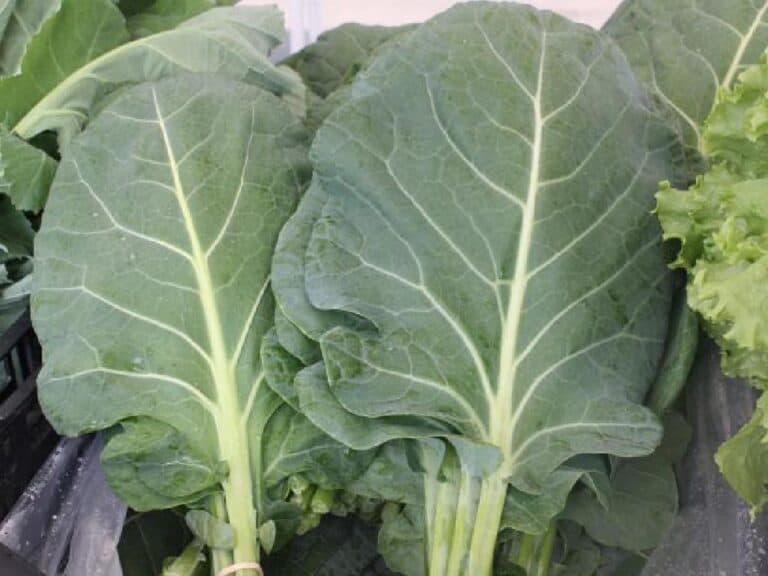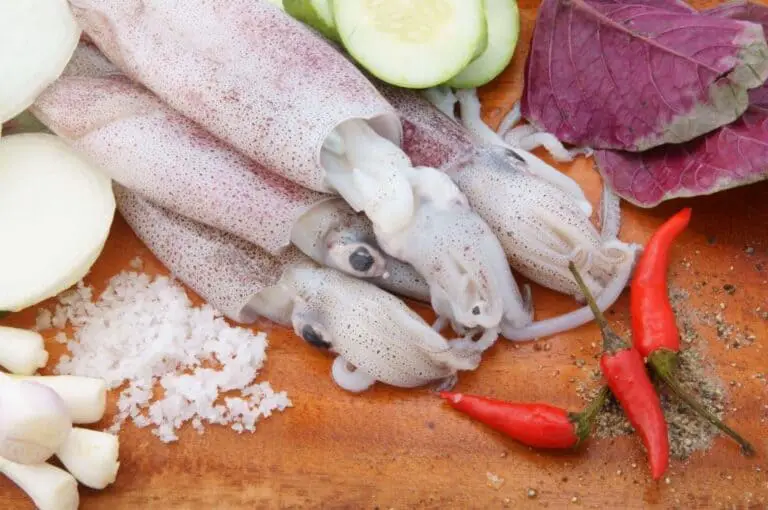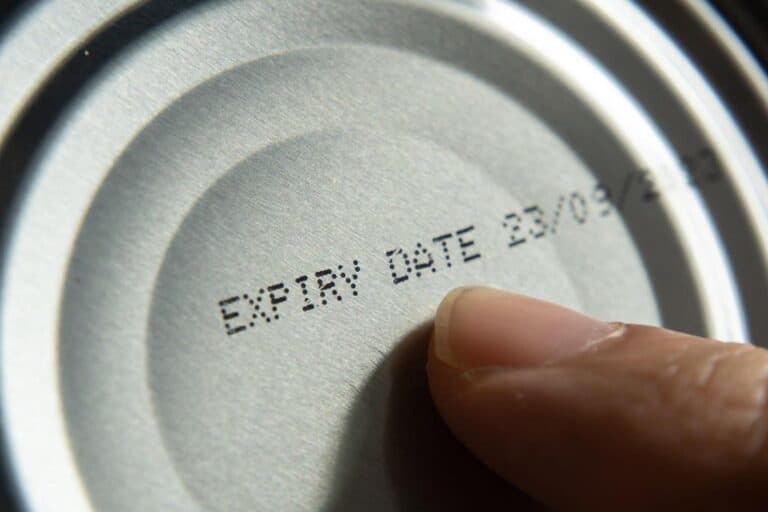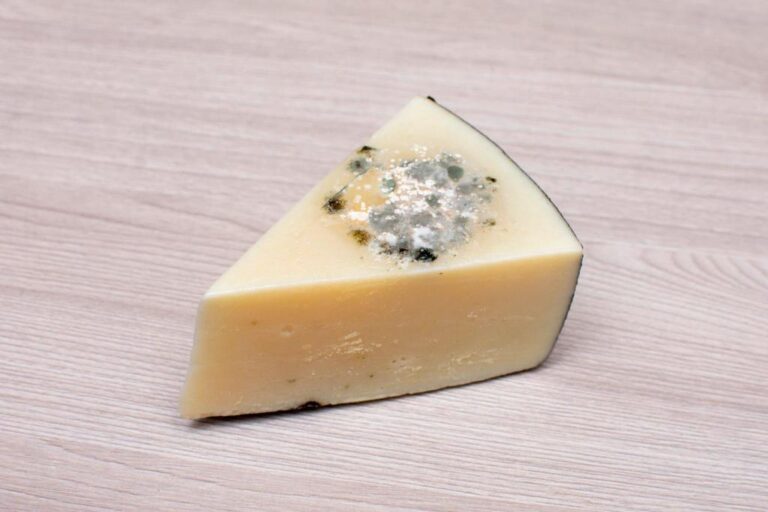How Long Are Brussels Sprouts Good for After Packaged Date
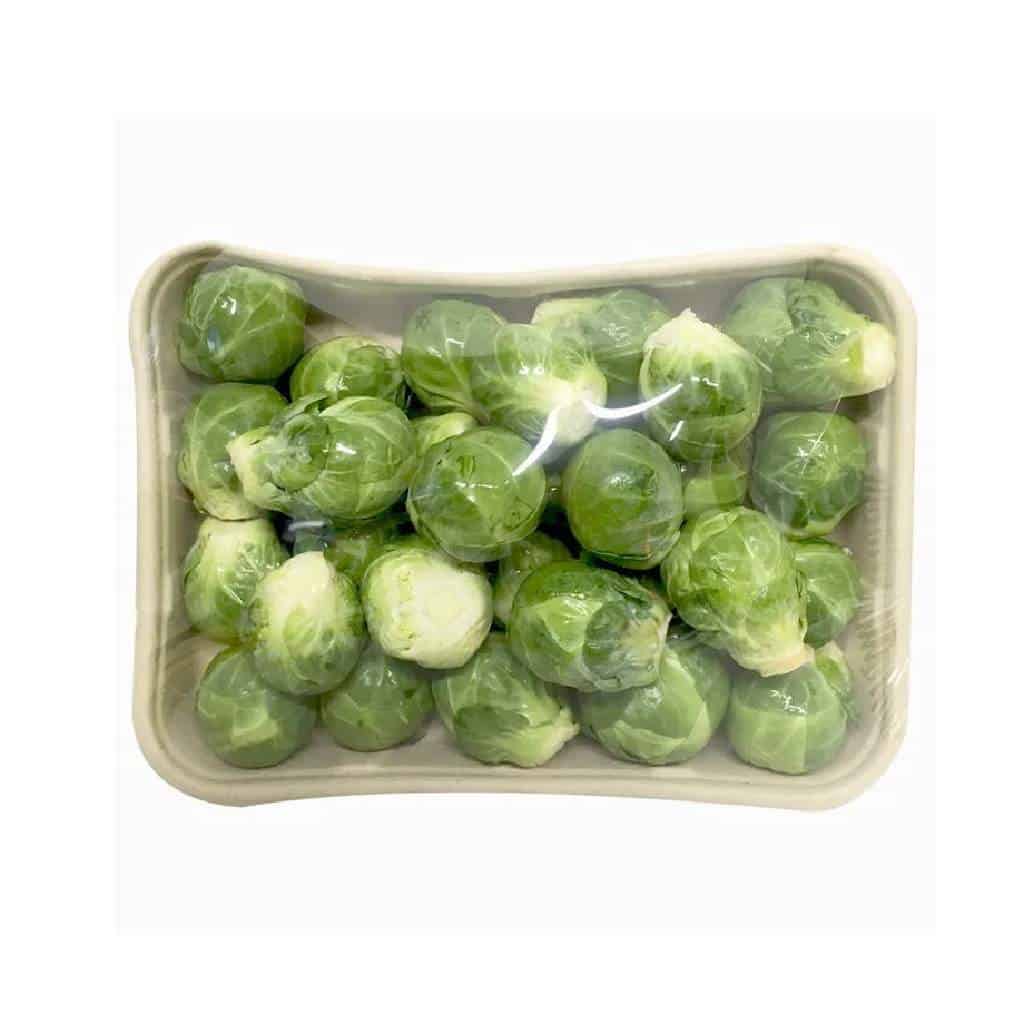
Are you a fan of those cute, miniature cabbages known as Brussels sprouts? If so, you’re in for a treat! These little green powerhouses not only add a delightful flavor to your meals but also offer a host of nutritional benefits.
But here’s the burning question: how long can you savor the goodness of Brussels sprouts after the packaged date? When kept properly in the refrigerator after the date of packaging, Brussels sprouts typically last 3–5 days.
In this article, we’re going to unravel the mystery behind the packaged date and delve into the factors that influence the longevity of these tiny veggies. From storage to spoilage, we will teach you how to keep Brussels sprouts fresh and tasty.
Whether you’re a cooking enthusiast or simply trying to make the most of your grocery purchases, understanding the shelf life of Brussels sprouts is essential. So, let’s embark on a journey of discovery and learn the secrets to prolonging the life of your beloved Brussels sprouts!
Introduction to Brussels Sprouts and Their Shelf Life
Brussels sprouts are best enjoyed when they are fresh and at their peak flavor. The packaged date serves as a reference point to assess the freshness and determine the shelf life of these vegetables.
Brussels sprouts, like other fresh produce, have a limited lifespan and can spoil over time. The shelf life of Brussels sprouts can vary depending on various factors, including how they are stored and the quality of the initial produce. However, it’s always recommended to inspect the sprouts before consuming them, even within the recommended time frame.
By following guidelines and consuming Brussels sprouts within their recommended shelf life, you can enjoy the freshest and most flavorful sprouts possible. Remember to inspect them before consumption and discard any sprouts that show signs of spoilage or have surpassed their recommended shelf life.
How Long Are Brussels Sprouts Good for After the Packaged Date?
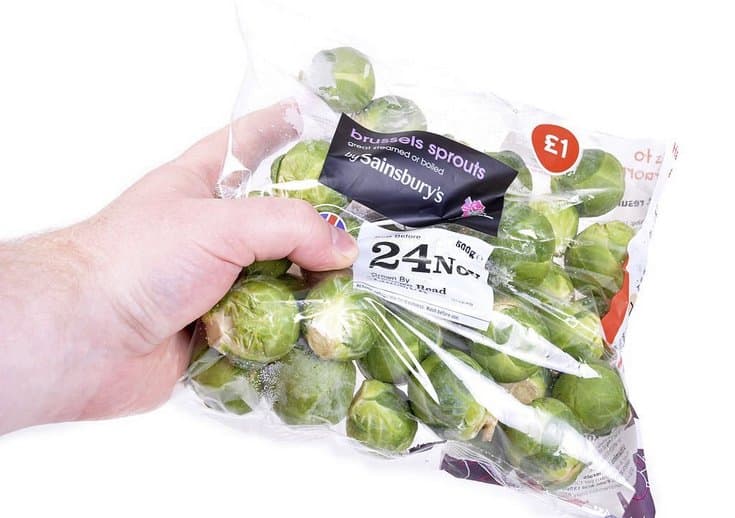
Determining the freshness and shelf life of Brussels sprouts after the packaged date is crucial to ensuring their quality and taste. The packaged date gives a general idea of freshness and shelf life, but several factors can affect them.
After the packaged date, Brussels sprouts typically remain good for about 3 to 5 days when stored properly in the refrigerator. However, it’s essential to inspect the sprouts visually and assess their quality before consuming them, even within the recommended time frame. Quality indicators include their appearance, texture, and aroma.
Table: Storage Method of Brussels Sprouts and Its Shelf Life
| Storage Method | Shelf Life |
| Refrigerator (Crisper) | 3 to 5 days |
| Freezing (Blanched) | Up to 12 months |
| Canning (Pressure Canning) | 1-2 year |
Read: Can You Trim and Cut Brussels Sprouts Ahead of Time?
Table: Freshness of Brussels Sprouts and Its Shelf Life Guide
For a quick reference, here’s a table summarizing the estimated shelf life of Brussels sprouts:
| Freshness of Brussels Sprouts | Shelf Life |
| Very fresh | Up to 5 weeks from packaged date |
| Fresh | Up to 4 weeks from packaged date |
| Slightly wilted | Up to 3 weeks from packaged date |
| Discolored or damaged | Discard |
WARNING
Please note that these are approximate guidelines, and individual results may vary depending on various factors. It’s always best to use your senses and judgment when assessing the freshness of Brussels sprouts
.
How to Maximize Brussels Sprouts Shelf Life
To maximize the shelf life of Brussels sprouts, it’s crucial to handle and store them correctly. Let’s explore some essential guidelines:
1. Purchase Fresh Brussels Sprouts
When buying Brussels sprouts, it’s advisable to select ones that appear fresh and vibrant. Look for sprouts that are firm, bright green, and free from discoloration or blemishes.
The sprouts should feel sturdy and not show signs of wilting or discoloration. Avoid sprouts with yellowing or browning leaves, as this can indicate aging or spoilage. Fresh Brussels sprouts should also emit a mild, earthy aroma.
The fresher the Brussels sprouts are at the time of purchase, the longer their potential shelf life.
2. Store Brussels Sprouts Properly
Proper storage is key to maximizing the shelf life of Brussels sprouts. To extend the shelf life of Brussels sprouts, it’s essential to store them under optimal conditions. Follow these steps:
- Refrigeration: Place unwashed Brussels sprouts in a perforated plastic bag to allow for airflow. Store them in the vegetable crisper drawer of your refrigerator, where the temperature is typically between 32°F (0°C) and 40°F (4°C).
- Avoid Moisture: Brussels sprouts are susceptible to moisture, which can lead to rotting. Make sure the sprouts are dry before storing them, and avoid washing them until you’re ready to use them.
- Remove Outer Leaves: If the outer leaves of the Brussels sprouts appear wilted or damaged, remove them before storing. This helps maintain freshness and prevent the spread of spoilage.
3. Check for Signs of Spoilage
Even with proper storage, Brussels sprouts can eventually spoil. It’s essential to inspect them before cooking or consuming them. Signs of spoilage include:
- Discoloration: Brussels sprouts with dark spots, yellowing, or browning are likely past their prime and should be discarded.
- Unpleasant Odor: If the Brussels sprouts emit a strong, foul odor, it’s an indication of spoilage.
- Sliminess: Texture matters! If the sprouts feel slimy or have a mushy texture, it’s best to avoid them.
By being vigilant and checking for these signs, you can ensure you’re consuming fresh and safe Brussels sprouts.
Factors Affecting the Shelf Life of Brussels Sprouts
Several factors can influence the shelf life of Brussels sprouts. It’s essential to take these factors into account to maximize their freshness and avoid spoilage. The main factors include:
- Environmental factors like temperature and humidity: Brussels sprouts are sensitive to temperature and humidity. Exposure to high temperatures or excess moisture can accelerate their deterioration. Storing them in a cool and dry place is crucial for prolonging their shelf life.
- Quality of the packaging and storage conditions: The packaging plays a vital role in preserving the freshness of Brussels sprouts. High-quality packaging materials that provide a barrier against air and moisture help to maintain their quality for a longer period of time. Additionally, storing the sprouts in airtight containers or bags can prevent moisture loss and slow down spoilage.
- Ripeness and freshness of the sprouts at the time of packaging: Brussels sprouts that are harvested at their peak ripeness and immediately packaged have a longer shelf life. Choose sprouts that are firm, have tightly closed leaves, and have a vibrant green color. Freshly harvested sprouts will generally last longer than those that were packaged later.
Understanding the Packaged Date on Brussels Sprouts
The packaged date on Brussels sprouts is a reference point that helps consumers determine the freshness and estimated shelf life of the vegetable. Here’s what you need to know about the packaged date:
- Definition of the packaged date and its purpose: The packaged date is the date when the Brussels sprouts were packed and sealed for distribution. It indicates the point at which the shelf life starts ticking. By referring to this date, you can make informed decisions about the sprouts’ freshness and quality.
- Locating and interpreting the packaged date: The packaged date is usually printed on the packaging itself. It can be found on the label, sticker, or directly printed on the bag or container. Look for phrases like “Packed on,” “Best by,” or “Use by” followed by the date. Be sure to check the year as well, especially if the packaging includes only a month and day.
- Different date formats: Date formats can vary depending on the manufacturer or region. Some commonly used formats include month/day/year (e.g., 07/15/2023), day/month/year (e.g., 15/07/2023), or spelled-out month (e.g., July 15, 2023). Familiarize yourself with the specific format used on the packaging to accurately interpret the packaged date.
Refrigeration and Brussels Sprouts’ Shelf Life
Refrigeration is the key to extending the shelf life of Brussels sprouts. Here’s what you need to know:
- Benefits of refrigerating Brussels sprouts: Refrigeration slows down the natural decay process of Brussels sprouts, helping them stay fresh for a longer period of time. The lower temperatures of the refrigerator inhibit the growth of bacteria and other microorganisms, preserving the sprouts’ quality.
- How long do Brussels sprouts last in the refrigerator: Brussels sprouts can stay fresh when properly stored in the refrigerator, for about one to two weeks. However, it’s important to note that their quality gradually declines over time. For the best taste and texture, it’s recommended to consume them within the first week.
- Proper storage techniques: Follow these guidelines for storing Brussels sprouts in the refrigerator:
- Remove any damaged or yellowed leaves before storing.
- Place the sprouts in a perforated plastic bag or airtight container to maintain moisture balance.
- Store them in the vegetable crisper drawer, which provides a cooler and more humid environment.
- Avoid storing Brussels sprouts near fruits like apples or bananas, as these release ethylene gas that can accelerate sprout spoilage.
By refrigerating Brussels sprouts, you can enjoy their freshness and nutritional benefits for a longer period of time.
Remember, proper handling and storage are crucial for maintaining the quality and safety of Brussels sprouts. Be sure to wash Brussels sprouts thoroughly before cooking or consuming them, and always discard any sprouts that show signs of spoilage.
In the next section of this article, we will discuss the benefits of freezing Brussels sprouts and how it can further extend their shelf life.
Freezing Brussels Sprouts for Long-Term Storage
Freezing Brussels sprouts is an excellent way to extend their shelf life and preserve their freshness. Here’s what you need to know:
- The process of blanching and freezing Brussels sprouts: Blanching involves briefly boiling the sprouts and then rapidly cooling them in ice water. This process helps maintain the sprouts’ color, texture, and flavor. After blanching, the sprouts are ready to be packed and frozen in airtight containers or freezer bags.
- Freezing shaved Brussels sprouts is possible, but it’s worth noting that freezing can affect their texture. Brussels sprouts contain a high water content, and freezing can cause the water to expand, leading to changes in texture and potential loss of crispness.
- Shelf life extension through freezing and storage times: When properly frozen and stored at 0°F (-18°C) or below, Brussels sprouts can last for 10 to 12 months. It’s important to label the containers with the date of freezing to keep track of their freshness.
- Best practices for thawing and cooking frozen Brussels sprouts: To thaw frozen Brussels sprouts, transfer them to the refrigerator and allow them to thaw overnight. Alternatively, you can cook Brussels sprouts directly from frozen by adjusting the cooking time accordingly. Avoid refreezing thawed sprouts to maintain their quality.
Safe Consumption and Quality of Brussels Sprouts
Determining whether Brussels sprouts are still safe to eat is essential for your well-being. Consider the following:
- Factors affecting the quality and taste over time: Over time, the quality of Brussels sprouts may deteriorate, resulting in a loss of flavor and texture. Factors such as temperature fluctuations, exposure to air, and moisture content can impact their overall quality.
- How to judge the freshness and optimal time to consume: Inspect the appearance and smell of Brussels sprouts. Fresh sprouts should have tight, compact leaves and a vibrant green color. They should not have a slimy texture or emit a foul odor. Use your judgment to determine if the sprouts are still fresh and suitable for consumption.
- Recipes and Meal Ideas Using Brussels Sprouts: Brussels sprouts can be incorporated into a wide range of delicious dishes. Roasting them with olive oil, garlic, and a sprinkle of parmesan cheese creates a flavorful side dish. You can also stir-fry them with other vegetables or add them to salads for a nutritious boost. Get creative and experiment with different flavor combinations to find your favorite way to enjoy Brussels sprouts.
Conclusion
By following these best practices, you can enjoy Brussels sprouts at their freshest and make the most of their delicious flavor and nutritional benefits.
Understanding the shelf life of Brussels sprouts is essential for maintaining their quality and taste. Brussels sprouts can be a delicious addition to your culinary adventures, whether you freeze them for long-term storage, use them in various recipes, or practice sustainable food habits to reduce waste. Remember to prioritize freshness when buying and storing them to savor the best that these nutritious vegetables have to offer.
Experiment with different cooking methods, freezing options, and culinary pairings to discover your favorite way to savor these delightful vegetables. Remember to trust your senses and use your judgment when assessing the freshness of Brussels sprouts. So, go ahead and enjoy the flavorful and nutritious journey that Brussels sprouts have to offer!
FAQs
Can I eat Brussels sprouts past the packaged date?
While the packaged date provides a guideline for freshness, it’s important to rely on your senses. Check for signs of spoilage such as discoloration, mushiness, or a foul odor. If the sprouts appear and smell fresh, they are generally safe to consume even after the packaged date.
How long can Brussels sprouts last at room temperature?
Brussels sprouts can maintain their freshness for up to two days at room temperature. However, to ensure optimal quality and prevent spoilage, it’s recommended to refrigerate them.
How do I store fresh Brussels sprouts to extend their shelf life?
To store Brussels sprouts for a long time and to extend the shelf life of fresh Brussels sprouts, store them in the refrigerator. Remove any damaged leaves, place them in a perforated plastic bag or airtight container, and store them in the vegetable crisper drawer.
What are the signs of spoilage in Brussels sprouts?
Signs of spoilage in Brussels sprouts include yellowing or browning leaves, a soft or mushy texture, and a strong, unpleasant odor. If you notice any of these signs, it’s best to discard the sprouts to avoid consuming spoiled food.
Can I freeze Brussels sprouts?
Yes, you can freeze Brussels sprouts to prolong their shelf life. Freezing helps retain their freshness and nutritional value. Proper blanching of the sprouts before freezing is recommended to maintain their quality.
What is the best way to thaw frozen Brussels sprouts?
To thaw frozen Brussels sprouts, transfer them from the freezer to the refrigerator and allow them to thaw overnight. This gradual thawing helps to preserve their texture. Alternatively, you can cook them directly from frozen by adjusting the cooking time accordingly.
What are some alternative uses for leftover Brussels sprouts?
If you have leftover Brussels sprouts, there are several creative ways to repurpose them. You can add them to salads, stir-fries, or pasta dishes. Roasting leftover sprouts with some olive oil and seasonings can also create a delicious side dish. Additionally, you can blend them into soups or purees for added flavor and nutrients.



